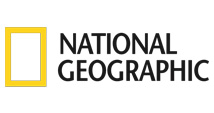Marine Conservation
South Africa
Our Marine Conservation project in South Africa is based in South Africa's first UNESCO World Heritage Site, the iSimangaliso Wetland Park.
Join the team to learn more about the ocean and marine conservation, while diving in one of the Indian Ocean’s top diving locations. Sharks, rays and turtles as well as 1200 fish species have been recorded on dives in the area!
Learn to dive or advance your skills whilst exploring an abundance of reefs and encountering iconic marine life. Divers of all abilities are welcome and training is provided. You’ll be based in the relaxed village of Sodwana Bay, with its pristine beaches, natural scenery and nearby wildlife reserves.
Key Info
View More PhotosProject Information
Volunteer role: What will I be doing?
Sodwana Bay is one of the top diving destinations in the Indian Ocean with an abundance of reefs and a chance to observe iconic marine species such as sharks, rays and turtles as well as some of the 1200 fish species that have been recorded there!
You will get to take part in marine conservation learning and lectures, complemented by dives focused on improving identification skills and providing a further understanding of West Indian Ocean reef ecology.
You will be trained in a variety of fields including fish, coral and invertebrate identification, marine data collection and survey techniques.
Volunteers participate in “citizen science” marine conservation initiatives, where recreational divers are able to contribute to research efforts. It varies depending on the time of year, but regular areas of focus include fish abundance and species diversity monitoring, turtle identification and manta ray identification.
Whilst on the dives you will take photos and record sightings, which are fed into global and regional databases aiming to identify patterns and population densities.
Your efforts will help to monitor the fauna and flora of Sodwana Bay, gathering biodiversity data and monitoring species distribution.
Dive courses
You will receive one dive course initially:
- Beginners divers will complete the PADI Open Water course
- Open Water divers will complete the PADI Advanced Open Water course
- Advanced level divers can choose to complete one course from a range of PADI dive specialty courses which include - Deep Diver, Nitrox, Underwater Naturalist, Peak Performance Buoyancy, or the Rescue Diver course
If you would like to do any additional dive courses, you can arrange and pay for this at the project. For volunteers staying longer than 4 weeks, you will receive one extra course included for every extra 4 weeks you do.
If you are already certified but haven't dived for a while, a scuba refresher is included at no extra charge.
Typical day
You will participate 5 days per week from Monday-Friday, usually for 6-8 hours per day. Start times vary depending on weather and season, and can be from 5.30am onwards. In general, mornings are spent diving, afternoons and evenings are for ecology lectures and relaxing.
There will normally be 1 dive per day. It takes around 3 hours in total to launch, travel to the dive spot and return to shore – around 1 hour of this will be spent diving. There are 10 dives included every 2 weeks - extra dives can be paid for locally if you would like to do additional diving (on your days off).
On your days off there are a variety of free time activities for you to get involved in or you can relax at the camp and enjoy the beach and local area.
Other volunteers
There are usually 5-6 volunteers (with a maximum of 18), numbers vary throughout the year. This project is popular with volunteers aged 18-25.
Duke of Edinburgh’s (DofE) Award
This placement has been approved by the DofE as meeting the requirements for the Residential section of the Gold Award.
Local support
You will be supported by a South African volunteer coordinator with a keen interest in marine ecology. They will normally be diving with you and will lead the ecology lecture series.
“Volunteers enable us to collect photographic data of our target species – allowing us to contribute to databases which track protected species and migration.” Robbie - Volunteer Coordinator
Accommodation
Volunteers stay in a rustic bush camp in the laid back and friendly village of Sodwana.

The camp has shared cabins and rooms, a shared bathroom block, kitchen and dining area, and a lovely outdoor braai (BBQ) area. There is WIFI available.

Meals
The camp has a fully equipped kitchen and volunteers make breakfast, lunch and weekend dinners for themselves, using food supplies provided. There is a cook who prepares dinner from Monday to Friday.
Here are typical examples of the food you may have:
- Breakfast – fruit, cereal, toast
- Lunch and dinner – sandwiches, salad, pasta, pizza, burgers, stews
Vegetarian and vegan options are available.
The tap water is safe to drink.
Getting there
You will need to fly into Johannesburg Airport (JNB) and then take a connecting flight to Richards Bay Airport (RCB).
You will be met on arrival at Richards Bay Airport and driven to the project, which takes about 3 hours.
Location and free time
Sodwana Bay is situated just outside the iSimangaliso Wetland Park, South Africa’s first UNESCO World Heritage Site. The iSimangaliso Wetland Park forms a continuous protected area stretching 150km from the Mozambique border southwards to St. Lucia and three nautical miles out to sea.
The park supports a diverse array of marine habitats including some of the world’s southernmost coral reefs, Africa’s largest estuary, mangrove swamps, seagrass meadows, intertidal reefs and deep water canyons. This makes it an ecosystem that it is extremely important to monitor and protect.
Sodwana Town itself is a small coastal holiday village mostly visited by divers, deep sea anglers and beach lovers. It's only small, but provides access to essential amenities as well as some of the Indian Ocean’s most glorious beaches. There are cafes, bars and restaurants with a laid back vibe to enjoy.

Volunteers have 2 days off each week. There are organised activities which you can book on to (for an additional fee), such as a safari in a game reserve, kayaking and quad biking. Many volunteers also enjoying relaxing at the camp or beach and socialising with the other members of the group. There is also some amazing stargazing to do at night!
Dive conditions
Water temperature: 20-28˚C
Visibility: 10-30m
Depth range: 10-40m
Common marine life you will encounter: the reef is home to 80% of South Africa’s fish species with big fish including the potato bass, crayfish and varieties of tropical reef fish. Humpback whales, whale sharks, ragged-tooth sharks and black marlin may also migrate through the waters seasonally.
Climate
Sodwana Bay has a subtropical climate with hot, wet summers between December and March and mild, drier winters between May and September. During the summer months, temperatures are typically between 25-32˚C. During the winter, temperatures are generally around 18˚C but can fall to lows of around 12 ˚C.
Travelling in South Africa before or after your placement
South Africa is situated at the southern tip of Africa and ranges from desert to sub-tropical. With dramatic landscapes, amazing wildlife and a rich and diverse culture and interesting history, South Africa has something for everyone. Popular activities in South Africa that you might like to combine with your project are:
- Spotting the Big 5 (lion, leopard, elephant, rhino and buffalo) on safari
- Travelling the Garden Route
- Visiting Cape Town and sampling some of the local wines
For more information on South Africa and some of the things we loved when we visited there please see our South Africa country page. This also features all our other South Africa volunteering projects as you might like to consider combining this project with one of the others we offer to make a trip of a lifetime!

Arrival & departure
- Start day (day to arrive at the project): Monday, see available start dates below
- Departure day: Monday
Durations
You can volunteer at this project for: 2 weeks, 4 weeks, 6 weeks, 8 weeks, 10 weeks, 12 weeks (14 nights per 2 weeks).
Start dates
2025: 6 Jan, 20 Jan, 3 Feb, 17 Feb, 3 Mar, 17 Mar, 7 Apr, 21 Apr, 5 May, 19 May, 2 Jun, 16 Jun, 7 Jul, 21 Jul, 4 Aug, 18 Aug, 1 Sep, 15 Sep, 6 Oct, 20 Oct, 3 Nov, 17 Nov, 1 Dec, 15 Dec
2026: 5 Jan, 19 Jan, 2 Feb, 16 Feb, 2 Mar, 16 Mar, 6 Apr, 20 Apr, 4 May, 18 May, 1 Jun, 15 Jun, 6 Jul, 20 Jul, 3 Aug, 17 Aug, 7 Sep, 21 Sep, 5 Oct, 19 Oct, 2 Nov, 16 Nov, 7 Dec, 21 Dec
What's Included
Included
- Dedicated Pod Volunteer specialist to support you from booking on until you complete your trip
- Comprehensive trip planning guide
- Richard's Bay airport pick up and transfer to accommodation
- Transfer from accommodation to Richard's Bay airport
- Accommodation
- Food - all main meals
- PADI dive course + 1 additional dive course for every 4 weeks you do after the first 4 weeks
- Scuba refresher (if required)
- Induction and marine ecology training
- Transport to beach for dives
- Dives
- Use of dive equipment - BCDs, tanks, regulators, weights
- Use of training manuals, ID guides, text books and survey equipment
- National Park fees, entrance fees and community levies
- Support from the team onsite in South Africa (including PADI Dive Instructor)
- 24/7 emergency support from the Pod Volunteer UK team
- Donation to Pod Environmental Fund tackling climate change
- 100% payment protection through ABTOT
- Volunteering certificate and reference (on request)
Not included
- Flights
- Travel insurance
- Vaccinations
- Dive equipment - westuit, mask & snorkel, fins (can be rented at the project)
- Living costs - snacks, drinks, wifi, laundry
- Any tourist trips / activities you choose to do in your free time
Price table
| 2 weeks | £1495 | GB Pounds |
| Extra 2 weeks | £895 | GB Pounds |
Discounts
- £50 discount if you have previously volunteered with Pod Volunteer
Where the money goes - financial transparency
Your fee covers the overseas costs of volunteering and the costs of running our organisation in the UK, on a non-profit basis. For more details and a breakdown of our costs please click here.
Book with confidence - financial protection
All monies paid to us are financially protected through The Association of Bonded Travel Organisers Trust Limited (ABTOT).
Fees in currencies other than GBP are indicative only and volunteers are invoiced in GBP. For current exchange rates please see www.xe.com
Read volunteer reviews from the Marine Conservation project
Alexandra
"This project was an amazing experience that I will never forget. The dive sites were amazing and everyone there was always supportive, nice and easy to talk to. On our dives we looked for Potato bass, Turtles and Rays to ID and put into a database. Although trying to find the specific name of the turtle or potato bass could take a while it was always interesting to find out who we saw and how long it had been since their last sighting.
I also really enjoyed the lectures that Emilia and Arno gave because we learnt so much about Sodwana Bay, coral reefs and other marine environments; if you had any questions they would always know the answer!
What did you find most rewarding?
Learning so much more about the fish and invertebrates found on coral reefs - especially ones you may not notice until they are pointed out to you.
I would recommend staying more than 2 weeks if you are a beginner diver because if you need to get your open water it doesn’t leave much time to do much of the conservation work."
Santiago
“Definitely worth it! It is an amazing experience with people from all over the world with one main thing in common. If I regret something is being there for only two weeks and not more. Everything was amazing! Amazing people and places.
Lea
"Volunteering at the South Africa marine conservation project was a brilliant experience that will not be soon forgotten. Aside from the breathtaking diving, the volunteer coordinators were absolutely brilliant. The amount of passion they have for marine life is truly inspiring and passion invoking. On top of this, you get to connect with a variety of people who share the same passions as yourself in a stunning setting."
Liz
“The Marine Conservation project in South Africa was one of the most exciting, fun and rewarding things I've done. After completing the diving course, volunteers go on a dive a day to one of the many and varied beautiful reefs you can find in Sodwana Bay.
The amount of marine life is amazing and your main project is to spot and identify the critically endangered Turtles and Potato Bass, and if you're really lucky, the odd Manta Ray might glide past. The team is so friendly and you will quickly find yourself part of the diving family and will learn a lot about marine conservation through the daily lectures and documentaries.
If you're willing to get your hands dirty, live closely with likeminded people in quite basic but close knit accommodation and fall in love with the underwater world then this is for you!"

24/7 support
Alex and the Pod UK team are here to help you throughout your trip
Reserve your place and start your volunteering adventure to South Africa!
BOOK NOWSIMILAR PROJECTS
Here are other popular projects you may be interested in











